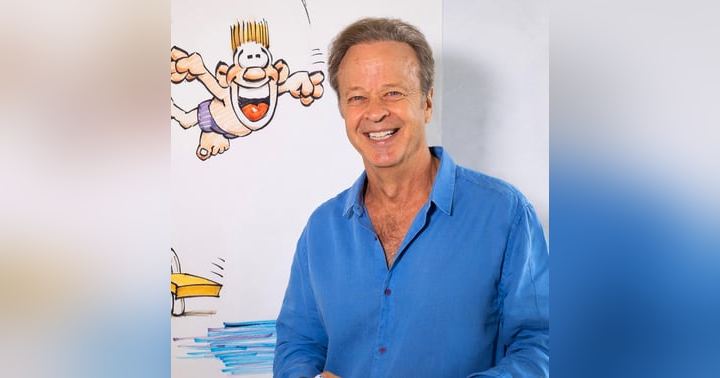
Jeaneen Tang had always known she wanted to help people. But the path to discovering exactly how she would do that was far from straightforward. Growing up in Honolulu, Hawaii, she navigated a childhood shaped by loss, resilience, and an innate desire to make a difference. Today, as a speech-language pathologist, author, and advocate for childhood communication, she empowers parents and caregivers with tools to help children develop language skills through everyday interactions.
A Childhood of Independence and Loss
Jeaneen’s early years were marked by both love and challenges. Raised by a single mother after her parents’ divorce, she grew up without a father figure in her life. Her grandfather stepped into that role, providing her with stability and support—until his passing when she was just eight years old.
His loss left a deep impact on her, sparking a desire to help others, particularly those who felt helpless in difficult situations. At first, she thought she might become a teacher. Then, in high school, she considered physical therapy, believing it could have helped her grandfather. But as she navigated college, she remained uncertain about her career path. It wasn’t until someone suggested speech therapy that she found her calling.
Finding Her Path in Speech Therapy
After researching the field, Jeaneen discovered that the University of Hawaii at Mānoa offered a graduate program in speech-language pathology. The more she learned, the more she realized it was the perfect fit. Not only did it align with her passion for helping others, but it also provided career longevity without the physical demands of jobs like physical therapy.
As she immersed herself in the field, she recognized how crucial communication was in shaping a child’s development, relationships, and overall confidence. Her work focused on helping children build their language skills in a way that felt natural and engaging.
The Road to Advocacy and Writing
Jeaneen’s journey wasn’t without its detours. At one point, she moved to Los Angeles to pursue acting. Balancing auditions, long hours of waitressing, and her work as a speech therapist, she realized that her true passion lay in her ability to make a tangible difference in people’s lives.
Her experiences in both speech therapy and parenthood led her to develop a unique approach to teaching language development. She saw firsthand how many parents unknowingly over-anticipated their child’s needs, leaving little room for them to practice communication skills. To address this, she developed practical strategies—ones that she would eventually compile into her book, Play Dumb and Sabotage.
The Power of Play in Language Development
The title of Jeaneen’s book might sound unusual at first, but its message is clear: Children learn best when they are given the space to communicate. Too often, caregivers anticipate what a child needs before they have a chance to express it themselves.
Her approach involves two key strategies:
-
Playing Dumb – Instead of assuming what a child wants, caregivers can pretend not to know. For example, if a child points to a toy, rather than immediately handing it over, a parent might ask, “Oh, do you want the ball or the car?” This encourages the child to verbalize their choice.
-
Sabotage – This doesn’t mean setting children up for failure, but rather creating small challenges that motivate them to communicate. For example, giving them only a few pieces of a snack instead of the whole portion encourages them to ask for more.
These techniques are designed to make language development feel like a natural part of daily life rather than a forced lesson.
Helping Parents and Educators Empower Children
Jeaneen’s book is not just for speech therapists—it’s a guide for any parent, caregiver, or educator who interacts with children. She breaks down complex language development concepts into practical, easy-to-implement exercises. Her goal is simple: To give children the tools they need to express themselves confidently.
Beyond her book, she continues to advocate for speech and language development through her work, online courses, and speaking engagements. She hopes to reach even more families through future projects, including a potential TED Talk and a podcast.
Key Takeaways from Jeaneen Tang’s Work
- Communication Development Starts Early – The more opportunities a child has to practice language, the stronger their skills become.
- Caregivers Can Foster Language Through Small Changes – Simple strategies like pausing before responding or offering choices can significantly impact language growth.
- Mistakes Are Part of Learning – Children shouldn’t fear getting words wrong; language learning thrives on trial and error.
- Play Is the Best Teaching Tool – The more engaging and interactive language practice is, the more a child will learn.
- Empowerment Begins with Awareness – Understanding how language develops allows parents and educators to create an environment that supports communication growth.
Jeaneen Tang’s journey from a child searching for purpose to a speech-language pathologist shaping young lives is nothing short of inspiring. Through her book, Play Dumb and Sabotage, and her continued advocacy, she is transforming the way we think about childhood communication.
To learn more about Jeaneen’s work, visit PlayDumbandSabotage.com, follow her on Instagram (@playdumbandsabotage), or check out her book on Amazon.










